5 reasons to book with a resort-approved ski school
Unfortunately ski resorts are generally not known for being cheap, and one of the larger expenses can be ski or snowboard lessons. With that in mind it is easy to understand why people are tempted to hire individuals to do the job at a much lower rate, and often as a cash in hand arrangement. As with most things in life, you get what you pay for, and when it comes to winter snow sports there can be significant risk attached to this style of service. Here are 5 reasons why it pays to use legitimate ski schools and instructors for your lessons.
1. Your travel insurance will hold up
Before even getting into the details of the experience itself, it is important to understand what risks are being undertaken when using unofficial instructors. Firstly, if you pay upfront and are then unable to take the lessons, most insurance companies will not cover your costs. Alongside that, as details emerge of any incident occurring during a lesson, your insurance company are likely to push back if you were following the instructions or exercises of someone unqualified to be giving them. It is also not likely that such individuals would have insurance in place to protect their guests or themselves, giving them incentive not to hang around should any incident occur. A vulnerable position for guests to be in. Another important insurance consideration is that the majority of winter snow sports policies do not cover you off piste unless you are with a qualified instructor or guide; very relevant if you are interested in that terrain. Whether you’re deep in the backcountry or two feet from the piste, the cost of rescue or medical attention can be enormous. From using the ski patrol to requiring a heli – being in this type of terrain without a qualified, registered professional could cost you enormously.
 2. Your instructor has a duty of care towards you
While the vast majority of us enjoy skiing and snowboarding incident free, it is important to acknowledge – and more importantly have a contingency plan – for a spot of bad luck. Official ski schools will have protocol and procedures in place in the event of accidents and injuries, as well as the duty of care from your instructor. In short, you will be supported and assisted. Unfortunately the same is not always true for unofficial operations, and in some cases so called `instructors` have vanished once things have taken a bad turn. A large motivator for this behaviour is liability and insurance – or lack thereof – but being abandoned would certainly compound any tricky situation. A sinister thought indeed – but one that needs to be considered.
2. Your instructor has a duty of care towards you
While the vast majority of us enjoy skiing and snowboarding incident free, it is important to acknowledge – and more importantly have a contingency plan – for a spot of bad luck. Official ski schools will have protocol and procedures in place in the event of accidents and injuries, as well as the duty of care from your instructor. In short, you will be supported and assisted. Unfortunately the same is not always true for unofficial operations, and in some cases so called `instructors` have vanished once things have taken a bad turn. A large motivator for this behaviour is liability and insurance – or lack thereof – but being abandoned would certainly compound any tricky situation. A sinister thought indeed – but one that needs to be considered.
 3. You know what you’re getting
Another great reason is the quality of the lessons themselves. When ski schools or instructors put themselves in the public spotlight as a legitimate operation, they then have a standard to live up to and a reputation to manage. If many guests have bad experiences, word will travel fast and in a world of online reviews and social media you would be aware if an operation was particularly poor. On the other hand, those carrying out lessons unofficially use no such public platform and so it is impossible to be sure of what you`re getting. Furthermore, if you do not have a good experience or feel that you did not get your moneys worth, there is little incentive for them to work hard to placate you or showcase their excellent customer service by amending the situation. Again, the guest is in a vulnerable position with no back up to push against a bad experience. In short, there is no accountability or assurance of what you’re getting.
3. You know what you’re getting
Another great reason is the quality of the lessons themselves. When ski schools or instructors put themselves in the public spotlight as a legitimate operation, they then have a standard to live up to and a reputation to manage. If many guests have bad experiences, word will travel fast and in a world of online reviews and social media you would be aware if an operation was particularly poor. On the other hand, those carrying out lessons unofficially use no such public platform and so it is impossible to be sure of what you`re getting. Furthermore, if you do not have a good experience or feel that you did not get your moneys worth, there is little incentive for them to work hard to placate you or showcase their excellent customer service by amending the situation. Again, the guest is in a vulnerable position with no back up to push against a bad experience. In short, there is no accountability or assurance of what you’re getting.
 4. The instruction is the best
Practical aspects aside, the difference in quality of instruction from a non professional versus a professional is night and day. For decades now instructor examining bodies around the world have been creating, developing and refining teaching tactics and methods to ensure that guests learn in the safest, most effective and enjoyable way possible. Associations such as the Canadian Ski Instructors Alliance, the British Association of Snowsport Instructors & the New Zealand Snowsports Instructors Alliance (to name a few), have been committed to improving the way that skiing and snowboarding is taught. Therefore, generally speaking – and of course there are always exceptions – the paying customer will receive proven methods and exercises to improve their riding, making for the most effective use of time. While official ski schools ensure that their staff are qualified and trained, unofficial ones may not. In fact, they may not be instructors at all but someone who can ski to an adequate standard and feels confident enough to show someone else how it is done. The sad truth here is that a number of things can go wrong; from serious injury through lack of standard industry safety precautions to unpleasant, frustrating & confusing experiences from poor teaching methods and knowledge. Though one lesson from a reputable school may cost much more than a what the bar tender from hotel may be charging, one lesson with the former would most likely improving your skiing more than in five lessons with the latter. In the end you could end up paying more for many lessons and your skiing may still be worse off.
4. The instruction is the best
Practical aspects aside, the difference in quality of instruction from a non professional versus a professional is night and day. For decades now instructor examining bodies around the world have been creating, developing and refining teaching tactics and methods to ensure that guests learn in the safest, most effective and enjoyable way possible. Associations such as the Canadian Ski Instructors Alliance, the British Association of Snowsport Instructors & the New Zealand Snowsports Instructors Alliance (to name a few), have been committed to improving the way that skiing and snowboarding is taught. Therefore, generally speaking – and of course there are always exceptions – the paying customer will receive proven methods and exercises to improve their riding, making for the most effective use of time. While official ski schools ensure that their staff are qualified and trained, unofficial ones may not. In fact, they may not be instructors at all but someone who can ski to an adequate standard and feels confident enough to show someone else how it is done. The sad truth here is that a number of things can go wrong; from serious injury through lack of standard industry safety precautions to unpleasant, frustrating & confusing experiences from poor teaching methods and knowledge. Though one lesson from a reputable school may cost much more than a what the bar tender from hotel may be charging, one lesson with the former would most likely improving your skiing more than in five lessons with the latter. In the end you could end up paying more for many lessons and your skiing may still be worse off.
 5. You protect the ski industry
Looking at the larger picture, feeding illegitimate enterprises within the ski resorts is damaging to not only that place and the community around it, but the industry as a whole. When lessons are paid for and carried out illegitimately, it ultimately does not feed back into the community in the form of taxes or growth, and undercuts legitimate instructors and ski schools at the same time. Aside from the vulnerable position the customer is placed in and the risks placed upon them, it chips away at an already declining industry. It makes it very difficult for those that do provide qualified staff, are insured, and uphold the industry standards to compete with those without such concerns. Eventually it damages those businesses and individuals as it trickles into the community. It can also leave people with truly negative experiences and deterred them from snow sports altogether, further contributing to the decline of snow sports.
5. You protect the ski industry
Looking at the larger picture, feeding illegitimate enterprises within the ski resorts is damaging to not only that place and the community around it, but the industry as a whole. When lessons are paid for and carried out illegitimately, it ultimately does not feed back into the community in the form of taxes or growth, and undercuts legitimate instructors and ski schools at the same time. Aside from the vulnerable position the customer is placed in and the risks placed upon them, it chips away at an already declining industry. It makes it very difficult for those that do provide qualified staff, are insured, and uphold the industry standards to compete with those without such concerns. Eventually it damages those businesses and individuals as it trickles into the community. It can also leave people with truly negative experiences and deterred them from snow sports altogether, further contributing to the decline of snow sports.
 Whether it is to minimise your own personal risk, ensure the best instruction or support the continuation of ski resorts, when it comes to taking lessons – play it save and hire a professional.
Nadine Robb is Owner and Instructor at Hakuba Ski Concierge. Hakuba Ski Concierge is a boutique ski school in Hakuba, Japan.
If you would like to be a guest blogger on A Luxury Travel Blog in order to raise your profile, please contact us.
Whether it is to minimise your own personal risk, ensure the best instruction or support the continuation of ski resorts, when it comes to taking lessons – play it save and hire a professional.
Nadine Robb is Owner and Instructor at Hakuba Ski Concierge. Hakuba Ski Concierge is a boutique ski school in Hakuba, Japan.
If you would like to be a guest blogger on A Luxury Travel Blog in order to raise your profile, please contact us.
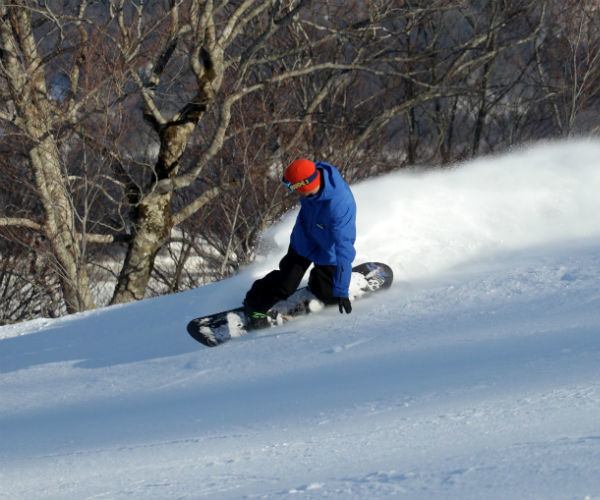 2. Your instructor has a duty of care towards you
While the vast majority of us enjoy skiing and snowboarding incident free, it is important to acknowledge – and more importantly have a contingency plan – for a spot of bad luck. Official ski schools will have protocol and procedures in place in the event of accidents and injuries, as well as the duty of care from your instructor. In short, you will be supported and assisted. Unfortunately the same is not always true for unofficial operations, and in some cases so called `instructors` have vanished once things have taken a bad turn. A large motivator for this behaviour is liability and insurance – or lack thereof – but being abandoned would certainly compound any tricky situation. A sinister thought indeed – but one that needs to be considered.
2. Your instructor has a duty of care towards you
While the vast majority of us enjoy skiing and snowboarding incident free, it is important to acknowledge – and more importantly have a contingency plan – for a spot of bad luck. Official ski schools will have protocol and procedures in place in the event of accidents and injuries, as well as the duty of care from your instructor. In short, you will be supported and assisted. Unfortunately the same is not always true for unofficial operations, and in some cases so called `instructors` have vanished once things have taken a bad turn. A large motivator for this behaviour is liability and insurance – or lack thereof – but being abandoned would certainly compound any tricky situation. A sinister thought indeed – but one that needs to be considered.
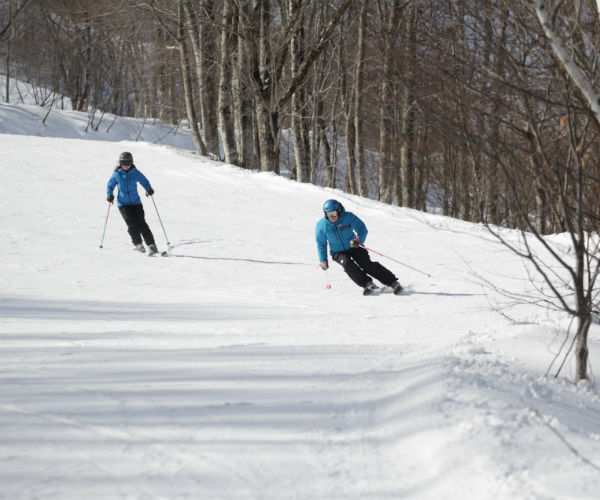 3. You know what you’re getting
Another great reason is the quality of the lessons themselves. When ski schools or instructors put themselves in the public spotlight as a legitimate operation, they then have a standard to live up to and a reputation to manage. If many guests have bad experiences, word will travel fast and in a world of online reviews and social media you would be aware if an operation was particularly poor. On the other hand, those carrying out lessons unofficially use no such public platform and so it is impossible to be sure of what you`re getting. Furthermore, if you do not have a good experience or feel that you did not get your moneys worth, there is little incentive for them to work hard to placate you or showcase their excellent customer service by amending the situation. Again, the guest is in a vulnerable position with no back up to push against a bad experience. In short, there is no accountability or assurance of what you’re getting.
3. You know what you’re getting
Another great reason is the quality of the lessons themselves. When ski schools or instructors put themselves in the public spotlight as a legitimate operation, they then have a standard to live up to and a reputation to manage. If many guests have bad experiences, word will travel fast and in a world of online reviews and social media you would be aware if an operation was particularly poor. On the other hand, those carrying out lessons unofficially use no such public platform and so it is impossible to be sure of what you`re getting. Furthermore, if you do not have a good experience or feel that you did not get your moneys worth, there is little incentive for them to work hard to placate you or showcase their excellent customer service by amending the situation. Again, the guest is in a vulnerable position with no back up to push against a bad experience. In short, there is no accountability or assurance of what you’re getting.
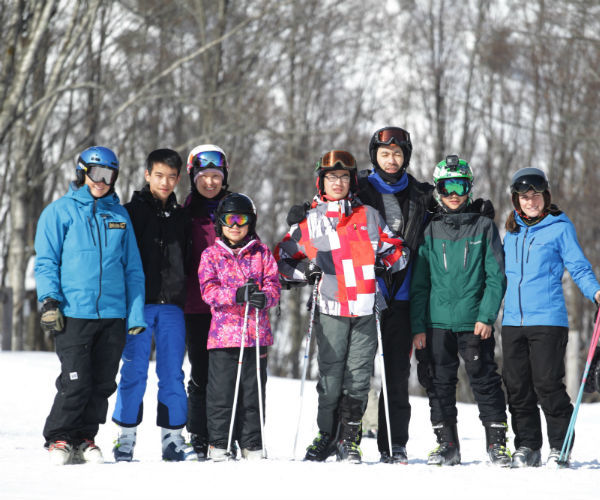 4. The instruction is the best
Practical aspects aside, the difference in quality of instruction from a non professional versus a professional is night and day. For decades now instructor examining bodies around the world have been creating, developing and refining teaching tactics and methods to ensure that guests learn in the safest, most effective and enjoyable way possible. Associations such as the Canadian Ski Instructors Alliance, the British Association of Snowsport Instructors & the New Zealand Snowsports Instructors Alliance (to name a few), have been committed to improving the way that skiing and snowboarding is taught. Therefore, generally speaking – and of course there are always exceptions – the paying customer will receive proven methods and exercises to improve their riding, making for the most effective use of time. While official ski schools ensure that their staff are qualified and trained, unofficial ones may not. In fact, they may not be instructors at all but someone who can ski to an adequate standard and feels confident enough to show someone else how it is done. The sad truth here is that a number of things can go wrong; from serious injury through lack of standard industry safety precautions to unpleasant, frustrating & confusing experiences from poor teaching methods and knowledge. Though one lesson from a reputable school may cost much more than a what the bar tender from hotel may be charging, one lesson with the former would most likely improving your skiing more than in five lessons with the latter. In the end you could end up paying more for many lessons and your skiing may still be worse off.
4. The instruction is the best
Practical aspects aside, the difference in quality of instruction from a non professional versus a professional is night and day. For decades now instructor examining bodies around the world have been creating, developing and refining teaching tactics and methods to ensure that guests learn in the safest, most effective and enjoyable way possible. Associations such as the Canadian Ski Instructors Alliance, the British Association of Snowsport Instructors & the New Zealand Snowsports Instructors Alliance (to name a few), have been committed to improving the way that skiing and snowboarding is taught. Therefore, generally speaking – and of course there are always exceptions – the paying customer will receive proven methods and exercises to improve their riding, making for the most effective use of time. While official ski schools ensure that their staff are qualified and trained, unofficial ones may not. In fact, they may not be instructors at all but someone who can ski to an adequate standard and feels confident enough to show someone else how it is done. The sad truth here is that a number of things can go wrong; from serious injury through lack of standard industry safety precautions to unpleasant, frustrating & confusing experiences from poor teaching methods and knowledge. Though one lesson from a reputable school may cost much more than a what the bar tender from hotel may be charging, one lesson with the former would most likely improving your skiing more than in five lessons with the latter. In the end you could end up paying more for many lessons and your skiing may still be worse off.
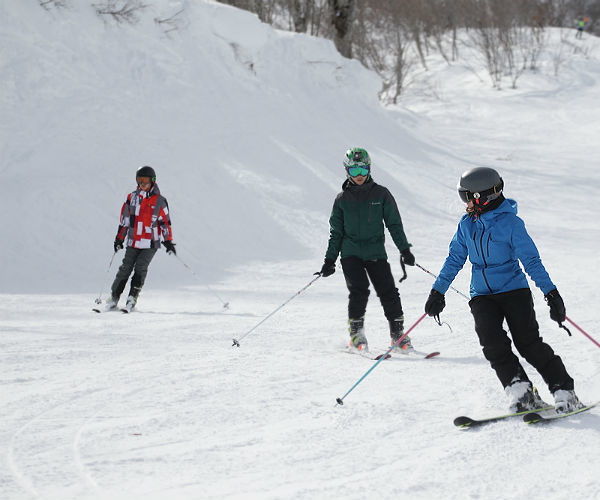 5. You protect the ski industry
Looking at the larger picture, feeding illegitimate enterprises within the ski resorts is damaging to not only that place and the community around it, but the industry as a whole. When lessons are paid for and carried out illegitimately, it ultimately does not feed back into the community in the form of taxes or growth, and undercuts legitimate instructors and ski schools at the same time. Aside from the vulnerable position the customer is placed in and the risks placed upon them, it chips away at an already declining industry. It makes it very difficult for those that do provide qualified staff, are insured, and uphold the industry standards to compete with those without such concerns. Eventually it damages those businesses and individuals as it trickles into the community. It can also leave people with truly negative experiences and deterred them from snow sports altogether, further contributing to the decline of snow sports.
5. You protect the ski industry
Looking at the larger picture, feeding illegitimate enterprises within the ski resorts is damaging to not only that place and the community around it, but the industry as a whole. When lessons are paid for and carried out illegitimately, it ultimately does not feed back into the community in the form of taxes or growth, and undercuts legitimate instructors and ski schools at the same time. Aside from the vulnerable position the customer is placed in and the risks placed upon them, it chips away at an already declining industry. It makes it very difficult for those that do provide qualified staff, are insured, and uphold the industry standards to compete with those without such concerns. Eventually it damages those businesses and individuals as it trickles into the community. It can also leave people with truly negative experiences and deterred them from snow sports altogether, further contributing to the decline of snow sports.
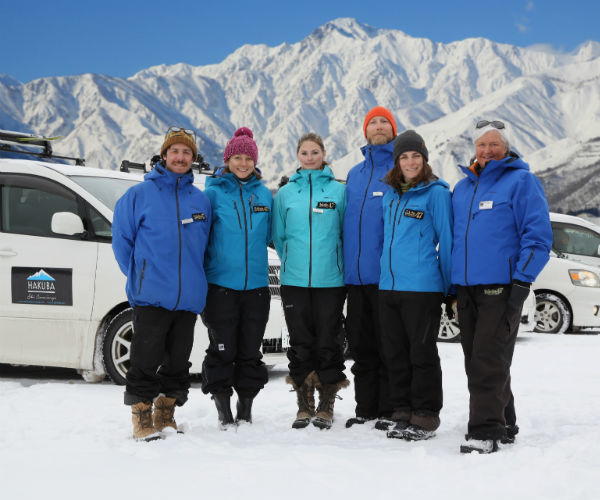 Whether it is to minimise your own personal risk, ensure the best instruction or support the continuation of ski resorts, when it comes to taking lessons – play it save and hire a professional.
Nadine Robb is Owner and Instructor at Hakuba Ski Concierge. Hakuba Ski Concierge is a boutique ski school in Hakuba, Japan.
If you would like to be a guest blogger on A Luxury Travel Blog in order to raise your profile, please contact us.
Whether it is to minimise your own personal risk, ensure the best instruction or support the continuation of ski resorts, when it comes to taking lessons – play it save and hire a professional.
Nadine Robb is Owner and Instructor at Hakuba Ski Concierge. Hakuba Ski Concierge is a boutique ski school in Hakuba, Japan.
If you would like to be a guest blogger on A Luxury Travel Blog in order to raise your profile, please contact us.Did you enjoy this article?
Receive similar content direct to your inbox.


Some of my friends have suffered some serious skiing injuries this year, a few of them were virtually self-taught and I fear that they just hadn’t taught themselves very well. They’ve learnt the hard way that it would have been better to learn from an approved ski school.
Thank you for your comment James, and I am sorry to hear about your friends. Hopefully they will continue to ski in the future and take a lesson or two!
Another big plus is that proper tuition teaches people to respect others and how to behave. You can get some cowboys on the snow who are nothing less than dangerous. Hopefully proper lessons will teach people some ski etiquette.
Another great point Kev, unfortunately not all skiers and snowboarders have a firm grasp of ski etiquette, and unfortunately the result can be frightening. Professional lessons absolutely do teach us how to conduct ourselves on the mountain.